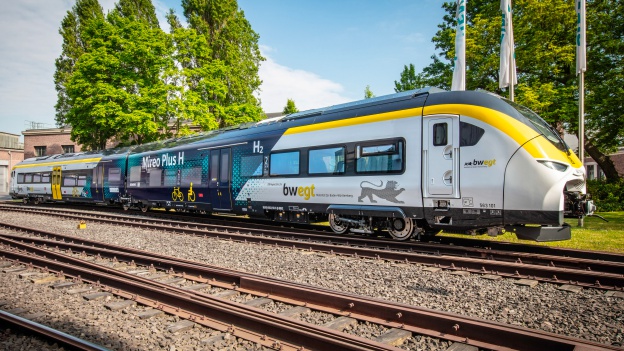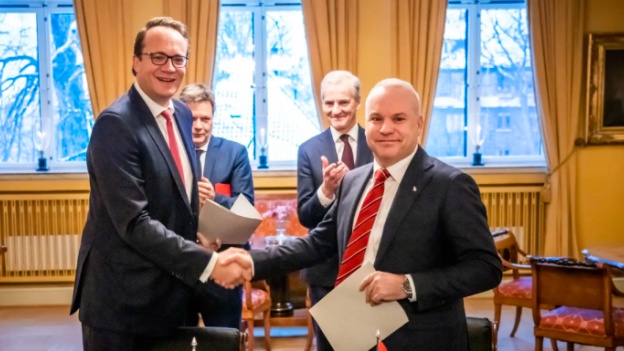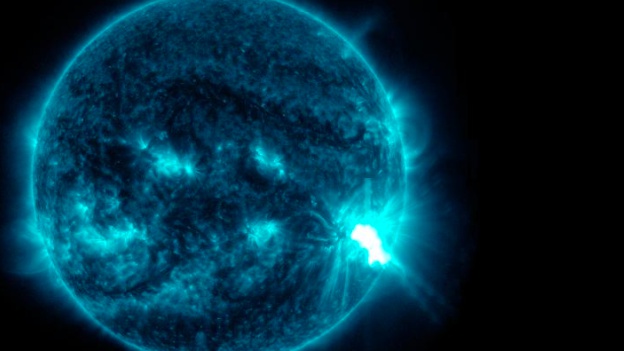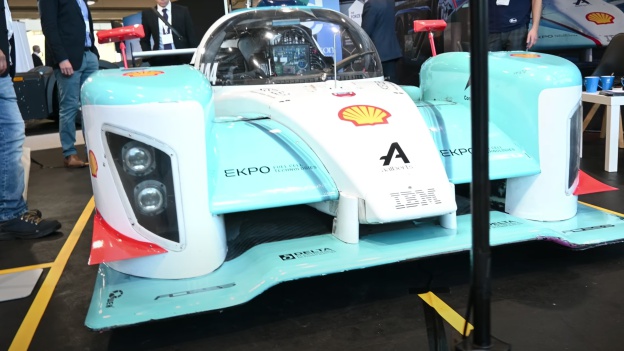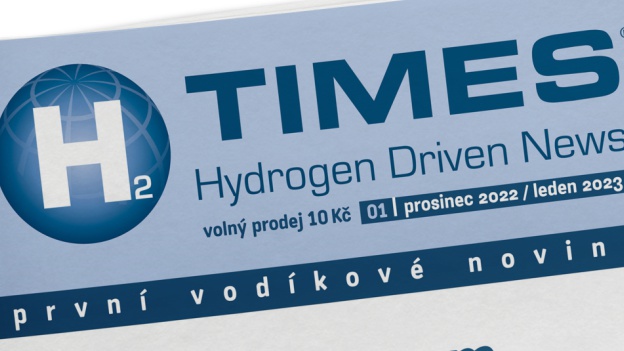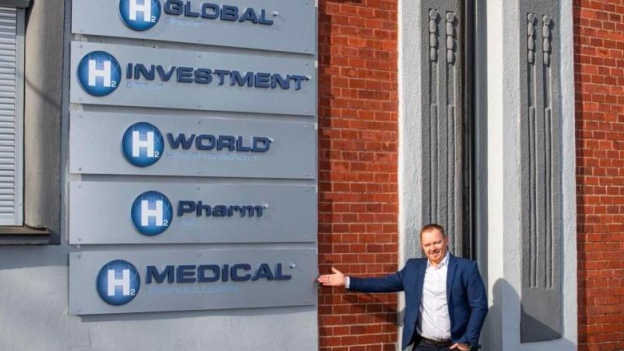In 2023, a significant shift in the hydrogen sector at the European level took place. In February, the European Commission issued legislation shedding light on the methodology for producing renewable hydrogen within the European Union. This means that projects focusing on the production of renewable hydrogen by electrolysis of water have finally been given a clue as to how to make hydrogen truly green.
EU legislation clarifies the role of hydrogen in decarbonisation, energy and transport
The year 2023 was marked by the progressive conclusion of the Fit for 55 legislation, which now requires Member States to develop renewable hydrogen production and consumption capacity in the industrial and transport sectors.
One important example from the Fit for 55 package is the finalisation of the Alternative Fuels Infrastructure Regulation (AFIR) in July, which encourages countries to build filling stations with the capacity to develop hydrogen freight transport every 200 kilometres on the main TEN-T network (i.e. motorways such as D1 or D5) by the end of 2030. The regulation also requires that at least 1 refuelling station be located in each regional city in the country.
Another key EU legal text adopted in October 2023 is the updated Renewable Energy Directive (RED3). This introduces mandatory targets for the consumption of renewable hydrogen in transport and industry. This will require the consumption of at least 20,000 tonnes of hydrogen on the territory of the Czech Republic by 2030, i.e. approximately 1/5 of the current grey hydrogen production capacity.
In October, legislators also agreed on the ReFuelEU Aviation Regulation, which requires airlines to use about 1.2% synthetic aviation fuels from 2030. Synthetic fuels are made from renewable hydrogen and thus directly contribute to the boom in its production capacity.
At the very end of the year, namely at the end of November and in December, EU Member States, the European Parliament and the European Commission reached agreement on the final text of the decarbonisation package for the gases market. This sets out, among other things, a definition of low-carbon hydrogen and empowers the Commission to develop a methodology similar to that of renewable hydrogen. The package also addresses issues of ownership of distribution and transmission systems (unbundling), as well as the mandatory minimum of 2% hydrogen in natural gas transmission systems at cross-border interconnection points or the creation of an independent European platform of hydrogen network operators to bring together hydrogen shippers.
Transposition of the above mentioned European legislation should take place within two to three years.
At the end of November 2023, the European Union also launched its first-ever Innovation Fund auction for operational support for renewable hydrogen, which it hopes will give a realistic view of renewable hydrogen prices across Europe.
Not just fuel. Hydrogen is also newly anchored in Czech legislation as an energy gas
In the Czech Republic, the development of hydrogen projects is slowly but surely taking off. In the course of 2023, the conditions under which hydrogen production projects can be financed were clarified in relation to state support rules, specifically from the Modernisation Fund and the Fair Transformation Fund.
At the beginning of 2023, the Ministry of Industry and Trade (MIT) started work on updating the Hydrogen Strategy of the Czech Republic, which has undergone significant changes. Among them, there is a clear intention to support renewable, hence low-carbon hydrogen and the envisaged sectors where the Czech Republic sees the greatest potential for hydrogen, in terms of reducing greenhouse gas emissions and increasing competitiveness. The strategy also newly names the actions to be taken over the coming years. These include, for example, the launch of support for the production of renewable hydrogen from the Modernisation Fund, the comprehensive anchoring of hydrogen as an energy gas in Czech legislation following the transposition of EU legislation, and the promotion of hydrogen consumption in the industrial and transport sectors, for example through the construction of filling stations. Final approval of the strategy is expected in early 2024.
In 2024, the MIT also expects to release an updated version of the National Action Plan for Clean Mobility (NAP CM), which will reveal how the Czech Republic sees the transport sector and its decarbonisation over the next few years.
The national legislation has succeeded in anchoring hydrogen as an energy gas in the summer of 2023, just as natural gas is already anchored there. Hydrogen is now known both in the Energy Act and in the Fuel Act. This means that hydrogen is now officially not only a fuel but also an energy gas under Czech law. Nevertheless, it should be mentioned that a comprehensive approach to hydrogen will only be brought about by the transposition of the decarbonisation package for the gas market and the directive to promote the use of renewable energy sources.
The Czech Republic is still waiting for the reform of the EU electricity market, the final form of which will have to be transposed in a similar timeframe as the hydrogen-related reforms. Thus, 2024, 2025 and 2026 will be exceptional years from a legislative point of view and the Czech Republic should adequately prepare for transposition.
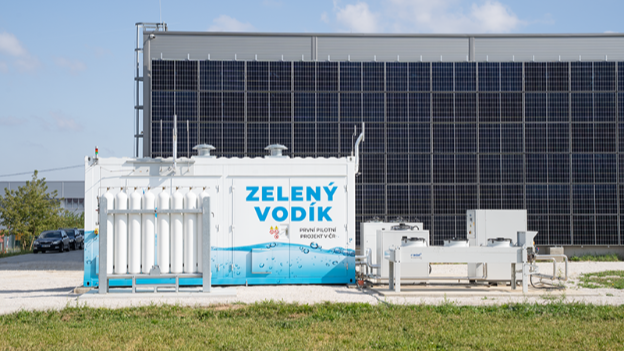
New filling stations and the first larger electrolyser have been built in the Czech Republic
In 2023, Orlen Unipetrol opened the first 2 public hydrogen filling stations in Litvínov and Barrandov in Prague. At the same time, ČEPRO launched another non-public station in Mstětice near Prague. In October 2023, Solar Global launched the first larger electrolyser with a capacity of approximately 230 kW in Napajedla.
In addition to infrastructure projects, the Prague City Transport Company has been testing a hydrogen bus from Škoda Electric since the summer. The Ostrava Transport Company has re-announced a tender for a new filling station at Hranečník, and the Ústí nad Labem Transport Company with Spolchemie has progressed with a project to refill and deliver hydrogen to the planned station in Ústí nad Labem.
A number of Czech hydrogen projects are heading to the final stage
According to a HYTEP questionnaire survey, the vast majority of the 11 upcoming hydrogen electrolyser projects are past the final investment decision stage. Most of them are focused on hydrogen sales in the mobility sector and have a capacity of hundreds of kW. For example, CEZ's electrolyser project in Mníšek pod Brdy will also offer a filling station for a fleet of approximately 10 hydrogen buses serving part of the Central Bohemian Region.
The year 2024 will bring the finalization of the Hydrogen Strategy of the Czech Republic, the announcement of new calls for support for the production of renewable hydrogen from the Modernization Fund under the GreenGas program, or other subsidy calls for the acquisition of filling stations under the Ministry of Transport. Work will also start on the transposition of EU directives and the finalisation of the National Climate and Energy Plan is to be completed, which will confirm the role of hydrogen in the decarbonisation process of the Czech Republic.













